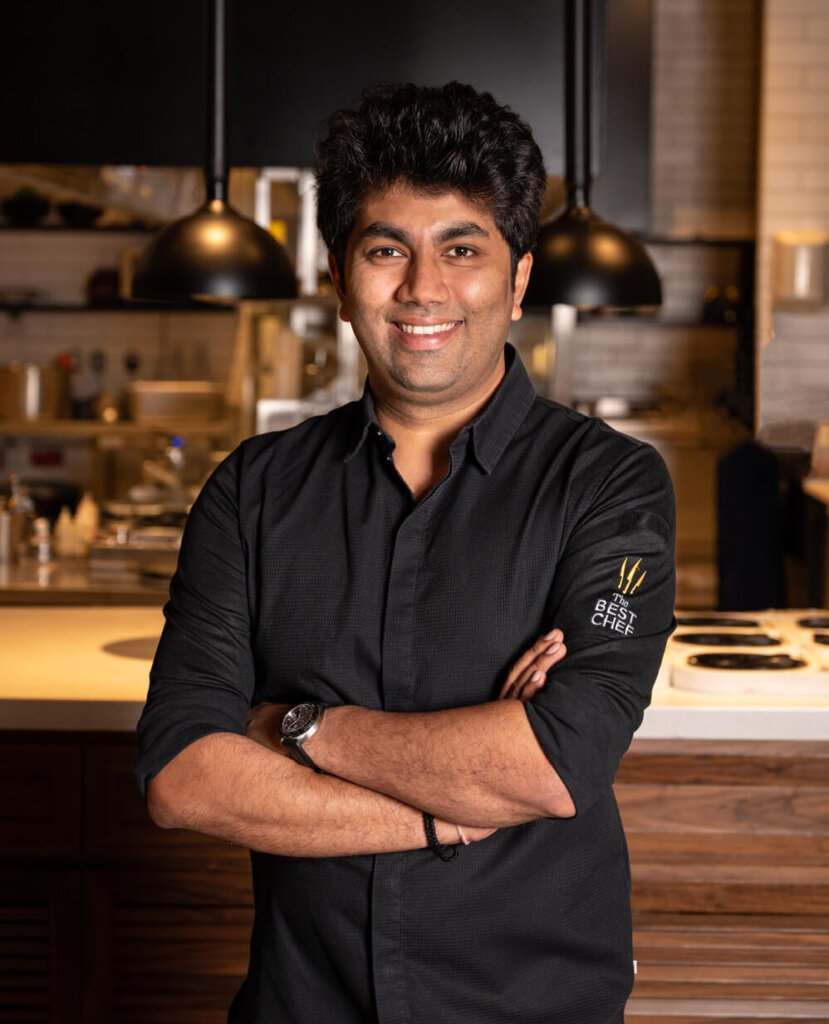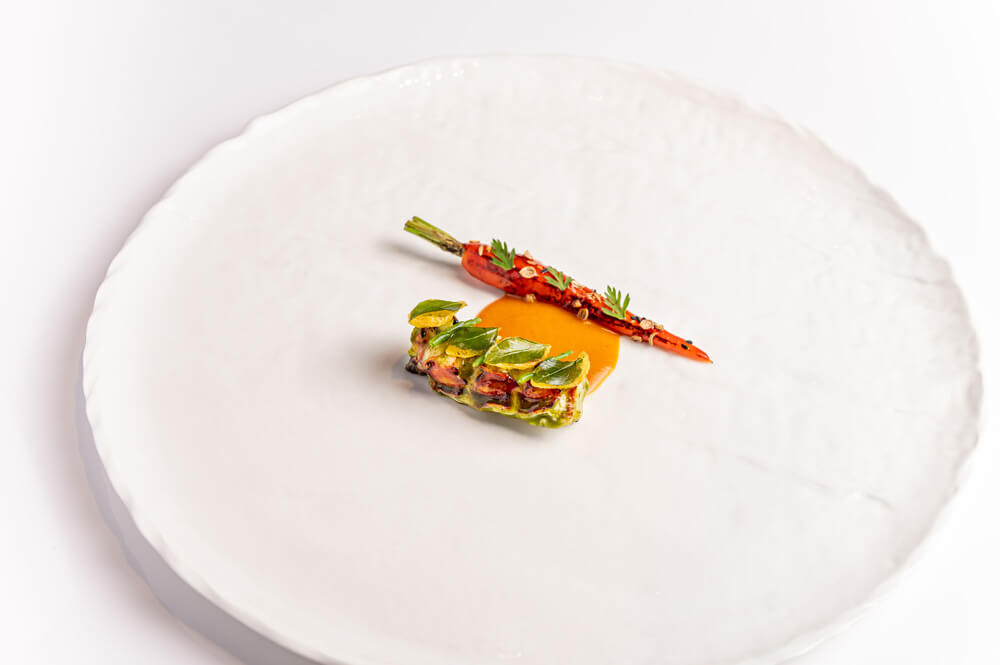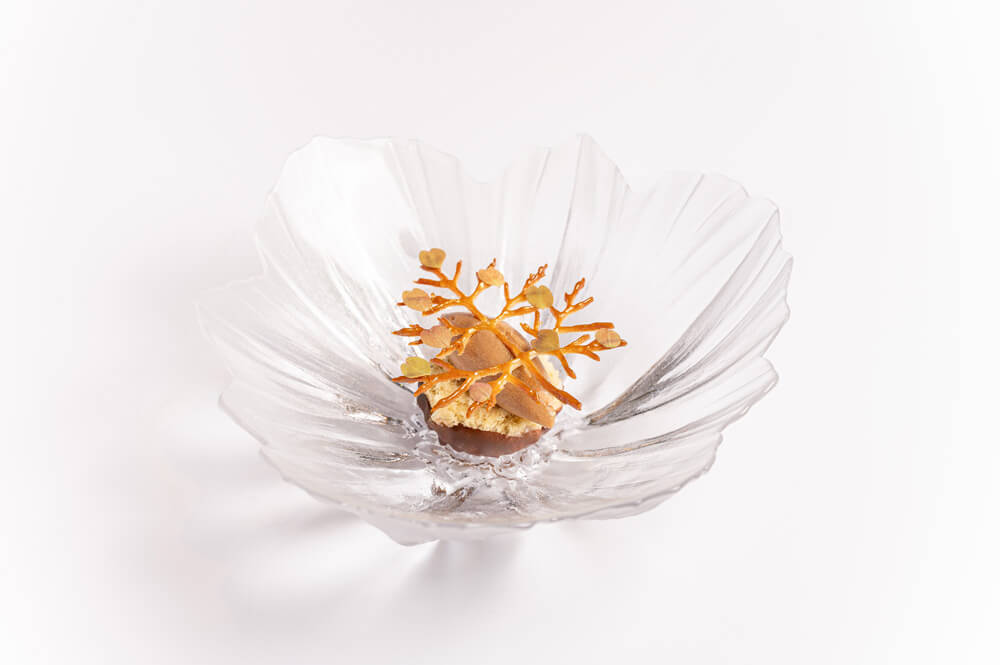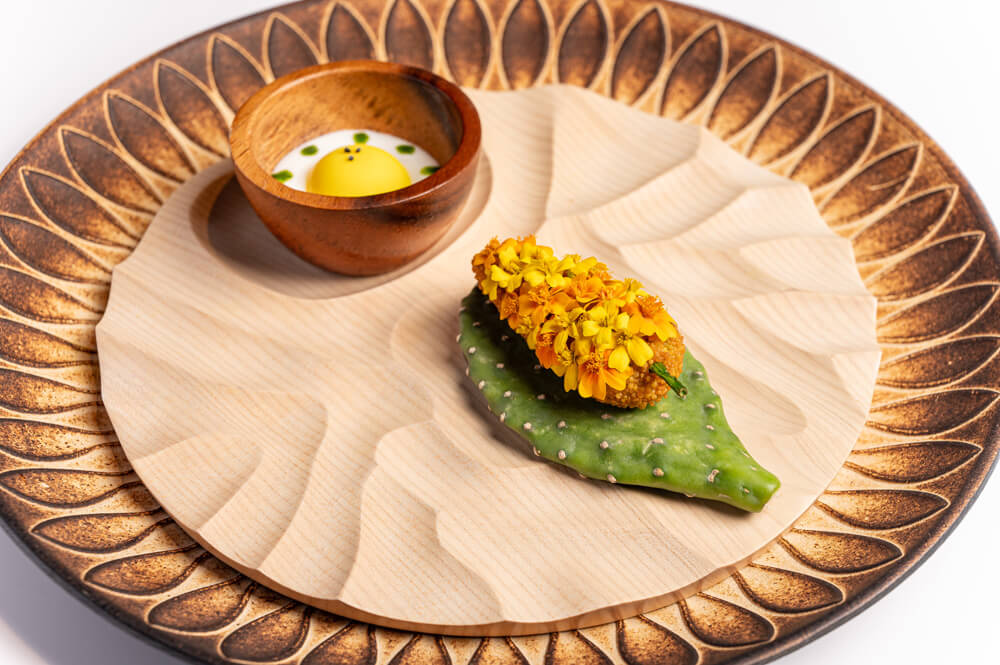The ceremony, hosted in the heart of Downtown Dubai, honoured 119 restaurants representing 35 distinct cuisines, a 72.5% increase from the MICHELIN Guide’s inaugural 2022 edition. More than a rise in numbers, the expansion reflects a striking evolution in Dubai’s culinary identity and its growing prominence on a global stage.

Dubai’s ascent as a gastronomic capital has been both rapid and intentional. According to the Dubai Gastronomy Industry Report 2024, the city now ranks second only to Paris among the world’s leading culinary destinations. The latest MICHELIN recognition has successfully drawn globally celebrated chefs while cultivating an impressive ecosystem of homegrown culinary talent.
Challenging the Boundaries of Fine Dining
The elevation of Trèsind Studio to MICHELIN three-star status marks a defining moment for Indian cuisine on the global stage. Chef Himanshu Saini’s flagship restaurant has undertaken a remarkable journey, receiving its first MICHELIN Star in 2022, advancing to two stars in 2023, and now achieving the ultimate accolade. This progression demonstrates not only culinary excellence but continuous innovation and refinement.

The restaurant’s achievement extends beyond individual recognition. It challenges long-standing perceptions of Indian cuisine within fine dining and reinforces Dubai’s role as a frontier where culinary traditions are redefined. Chef Saini’s vision positions Indian gastronomy as progressive, elevated, and deserving of the industry’s highest honours.
Equally significant is the three-star recognition awarded to FZN by Björn Frantzén. With this achievement, Frantzén became the first chef to hold MICHELIN’s top accolade across three continents, Stockholm, Singapore, and now Dubai. This accomplishment demonstrates Dubai’s capacity to attract and support the world’s most accomplished culinary talents.
The International Language of Food
The 2025 MICHELIN Guide Dubai selection encompasses an extraordinary range of dining experiences. Beyond the three-star establishments, the guide features three restaurants with two MICHELIN Stars, 14 with one star (including two new additions), and 22 Bib Gourmand restaurants that highlight exceptional value alongside quality.

Representing 35 cuisines across 119 establishments, the guide captures the rich diversity that defines Dubai’s dining culture. This diversity stems from the city’s international population and the influence of its multicultural population. The increase from 69 listings in 2022 to 119 in 2025 indicates a sharp upward trajectory in both scale and ambition.
Three restaurants have been awarded MICHELIN Green Stars, recognising their leadership in sustainable dining. Their inclusion signals a growing awareness within Dubai’s culinary sector of the importance of environmental responsibility, ethical sourcing, and long-term impact. It also marks a shift in the guide’s criteria, expanding its focus to celebrate values that extend beyond the plate.
Food as Experience, Value, and Vision
Dubai’s growing recognition from MICHELIN goes beyond industry accolades, it plays a strategic role in the city’s global positioning. From January to April 2025, Dubai welcomed 7.15 million international overnight visitors, marking a 7% year-on-year increase. Gastronomy is now a core driver of that growth, with the city’s dining credentials emerging as a key differentiator in global tourism.

The presence of 119 MICHELIN-recognised establishments creates a virtuous cycle. International recognition attracts talented chefs and restaurateurs, who in turn elevate local standards and attract more visitors. This ecosystem supports not only individual restaurants but the broader hospitality and tourism sectors.
By attracting world-class culinary talent while nurturing local concepts, the emirate has created a dining scene that rivals established gastronomic capitals. This achievement required significant investment in infrastructure, training, and market development over many years.
The recognition of Trèsind Studio with three MICHELIN Stars marks a considered shift in how Indian cuisine is perceived within fine dining. It reflects a broader openness to reinterpreting culinary traditions in contemporary formats, and quietly affirms Dubai’s capacity to support this evolution. The restaurant’s progression is significant, not only for its team but for the wider industry dialogue around cultural representation in high-end gastronomy.



